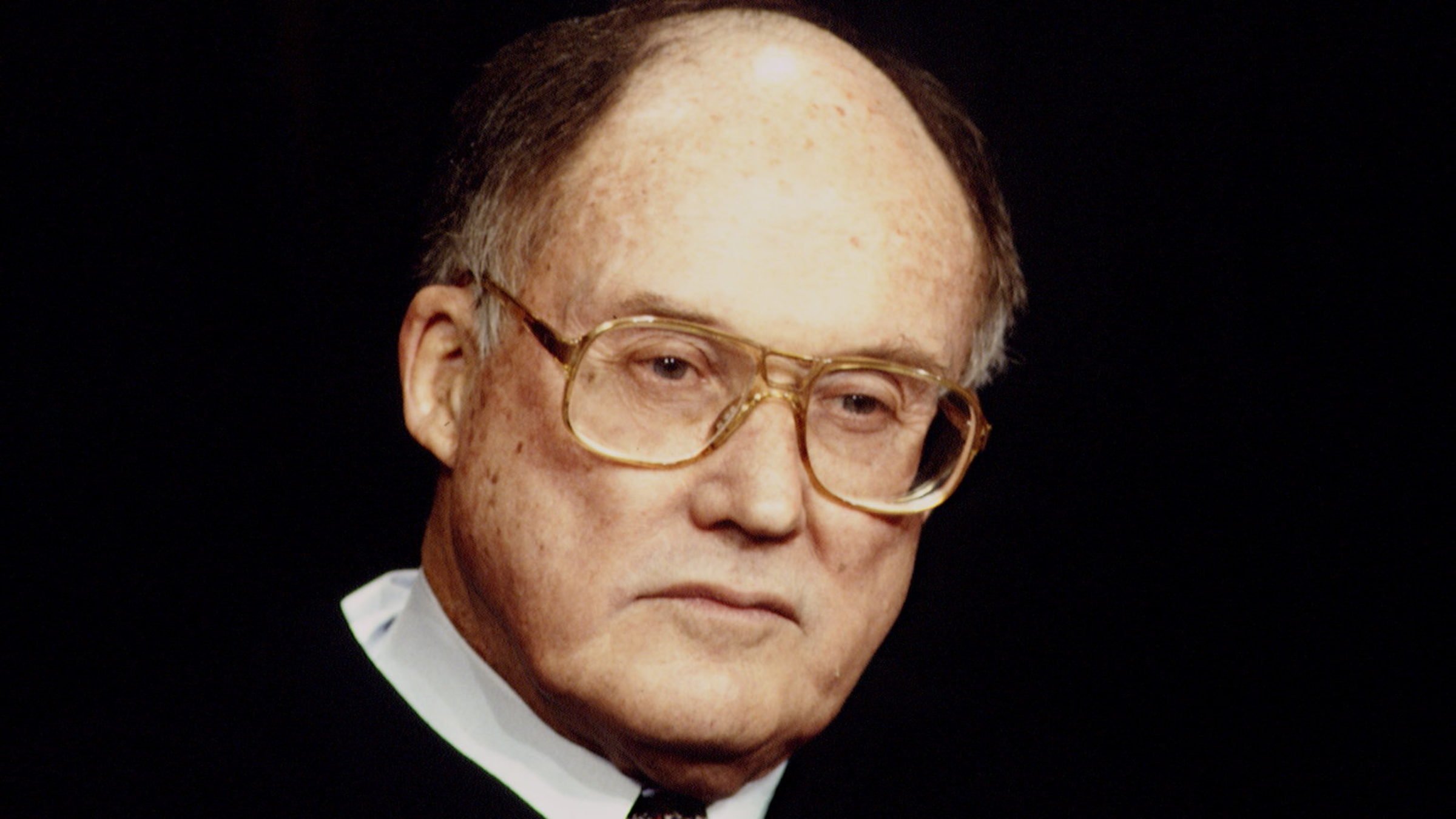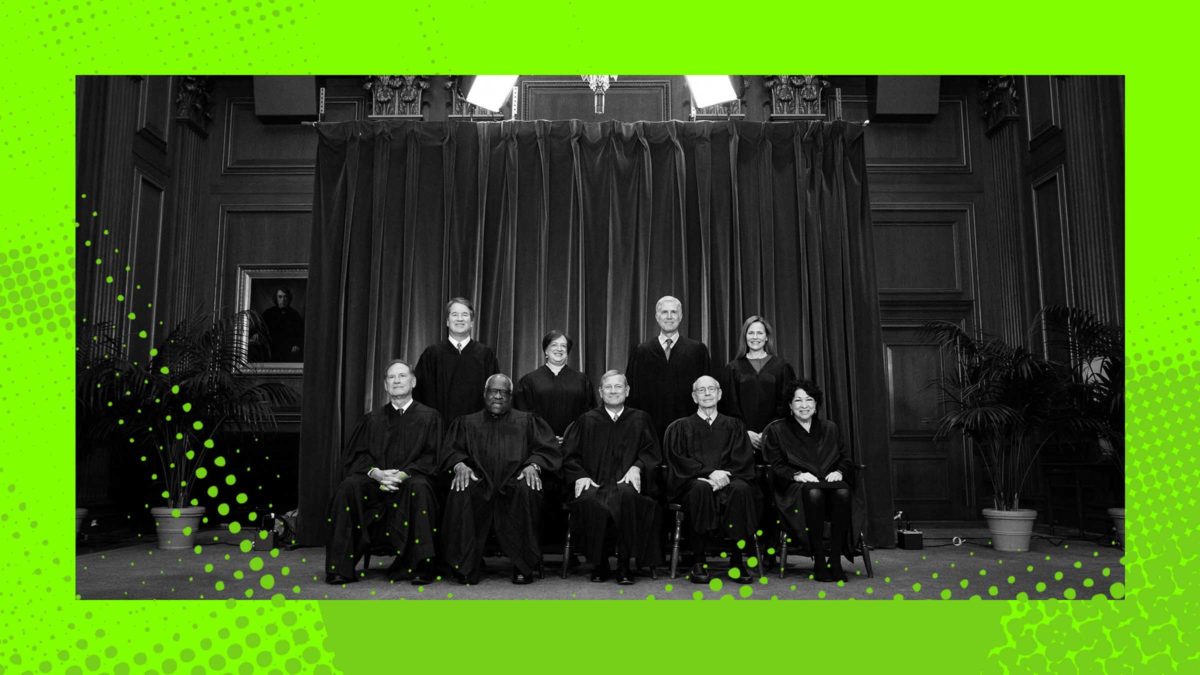At around noon on a September day in 1995, Sam Wardlow, a 44-year old Black man, was standing outside a building on West Van Buren Street in Chicago when a four-car caravan of police cars drove past him. According to one officer, Timothy Nolan, Wardlow glanced in his direction and fled into a nearby alleyway. Nolan turned his car around to follow Wardlow, eventually cornering him on nearby West Congress Street.
Without asking questions, Nolan exited his car and frisked Wardlow, locating a .38-caliber handgun with five rounds of ammunition in his bag. Nolan arrested Wardlow, who was charged with unlawful possession of a weapon by a person previously convicted of a felony. At trial, a state court judge denied Nolan’s motion to suppress, and he was sentenced to two years in prison.
Wardlow appealed his conviction, arguing that Nolan’s search was baseless and violated his Fourth Amendment right to be free of “unreasonable searches and seizures.” The state answered that Wardlow’s decision to run away from cops in an area ostensibly known for drug activity justified stopping Wardlow’s flight and searching him for guns.
Five years after his arrest, the U.S. Supreme Court upheld the search in Illinois v. Wardlow in a 5-4 decision opinion written by Chief Justice William Rehnquist. “Headlong flight—wherever it occurs—is the consummate act of evasion,” Rehnquist wrote. “It is not necessarily indicative of wrongdoing, but it is certainly suggestive of such.” The task of evaluating the propriety of Nolan’s actions, he continued, “must be based on commonsense judgments and inferences about human behavior.” In doing so, the Court cast a Black man’s decision to run from police as inherently suspicious and worthy of further investigation by law enforcement.

William Rehnquist, who never encountered a police humiliation of a person of color of which he didn’t approve (Photo by Jeffrey Markowitz/Sygma via Getty Images)
In the years since Wardlow, voluminous social science research has quantified what Black people have always known to be true: that interacting with police is dangerous and potentially deadly. Police kill Black people at more than twice the rate at which they kill white people, according to a database maintained by The Washington Post. The Court’s decision in Wardlow puts people of color in a terrible double bind: It transforms a rational, common-sense desire to avoid police officers who are disproportionately likely to kill them as a legal justification for police harassment, detention, and violence.
The Wardlow majority walked back the Court’s decision in Florida v. Royer, which held that ignoring a cop’s questions does not, on its own, create reasonable suspicion for a search for weapons. In Royer, police stopped a “nervous”-looking man at an airport and found marijuana in his suitcase. In an opinion written by Justice Byron White, however, the Court decided that Royer’s appearance wasn’t enough to stop him. An individual cannot “be detained even momentarily without reasonable, objective grounds for doing so; and his refusal to listen or answer does not, without more, furnish those grounds,” White wrote. In 1991, the Court reached a similar conclusion in Florida v. Bostick, noting that one’s “refusal to cooperate, without more, does not furnish the minimal level of objective justification needed for a detention or seizure.”
To get around Royer, the Wardlow majority pointed out that Wardlow’s flight took place in a “high crime area”—a relevant factor in determining the reasonableness of the stop, according to the justices. It was “respondent’s presence in an area of heavy narcotics trafficking,” in addition to this flight, that drew the officers’ attention, Rehnquist wrote.
The majority did not specify what, exactly, makes a neighborhood a “high crime area.” But in a partial dissent joined by Justices Ruth Bader Ginsburg, David Souter, and Stephen Breyer, Justice John Paul Stevens made explicit that phrases like these are euphemisms to describe where Black and other people of color live. And for people of color living in heavily-policed neighborhoods, he wrote, “contact with the police can itself be dangerous,” rendering efforts to avoid police neither “aberrant” nor “abnormal.”
Citing the then-emerging social science data about racial disparities in traffic stops and other police interactions, Stevens concluded that the “evidence supporting the reasonableness of these beliefs is too pervasive to be dismissed as random or rare, and too persuasive to be disparaged as inconclusive or insufficient.”
The Court’s criminalization of people who avoid police has gone so far as to sanction the use of lethal force, even for an infraction as minor as a speeding violation. In Scott v. Harris, decided in 2007, the Court invoked the doctrine of qualified immunity to hold that a cop who runs someone off the road for failing to pull over hadn’t violated a “clearly established” law, and thus couldn’t be sued in court. The Court has already insulated police from accountability for nearly every flavor of misconduct. As it turns out, this extends even to police who permanently paralyze someone while trying to give them a traffic ticket. Again, this burden falls heaviest on people of color: More than one-quarter of police killings during traffic stops are killings of Black drivers.
Once again, Stevens dissented in Harris, calling out the majority for its “uninformed speculation” about the hypothetical dangers of just letting the fleeing driver go. (The majority opinion from Justice Antonin Scalia characterized the collision as “a Hollywood-style car chase of the most frightening sort,” which, given that the man fleeing from police used his turn signal to pass other cars, feels like a bit of a stretch.) Failing to stop, Stevens argued, is not “a capital offense or even an offense that justified the use of deadly force rather than an abandonment of the chase.”
Over the past year, police officers have shot and killed more than 1,000 people in the United States, per the Post. And for people of color, even ostensibly routine interactions with law enforcement are disproportionately likely to end in tragedy. Yet the Court has consistently turned a blind eye to these realities, content to accept the status quo as natural and inevitable—a legal system imbued with racism that does not hold cops accountable.

